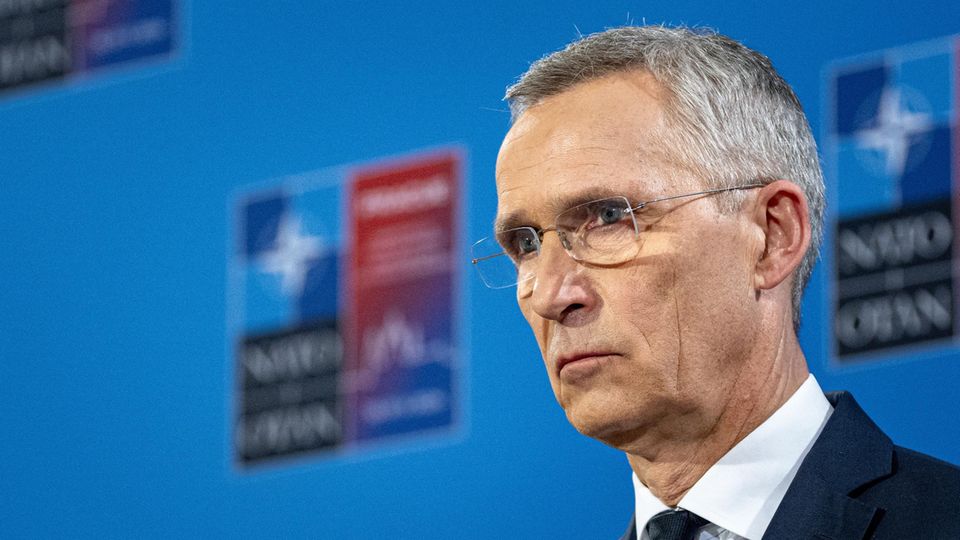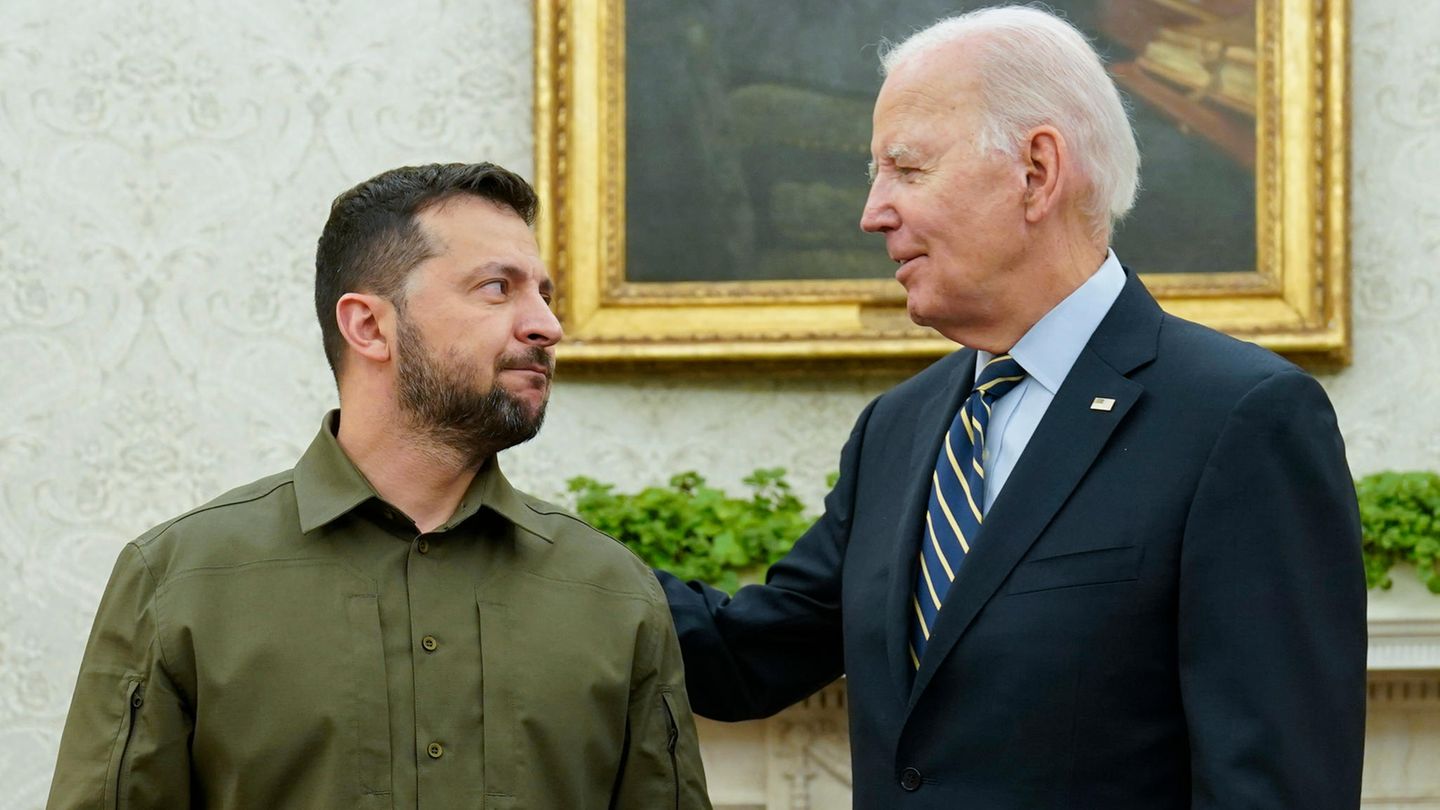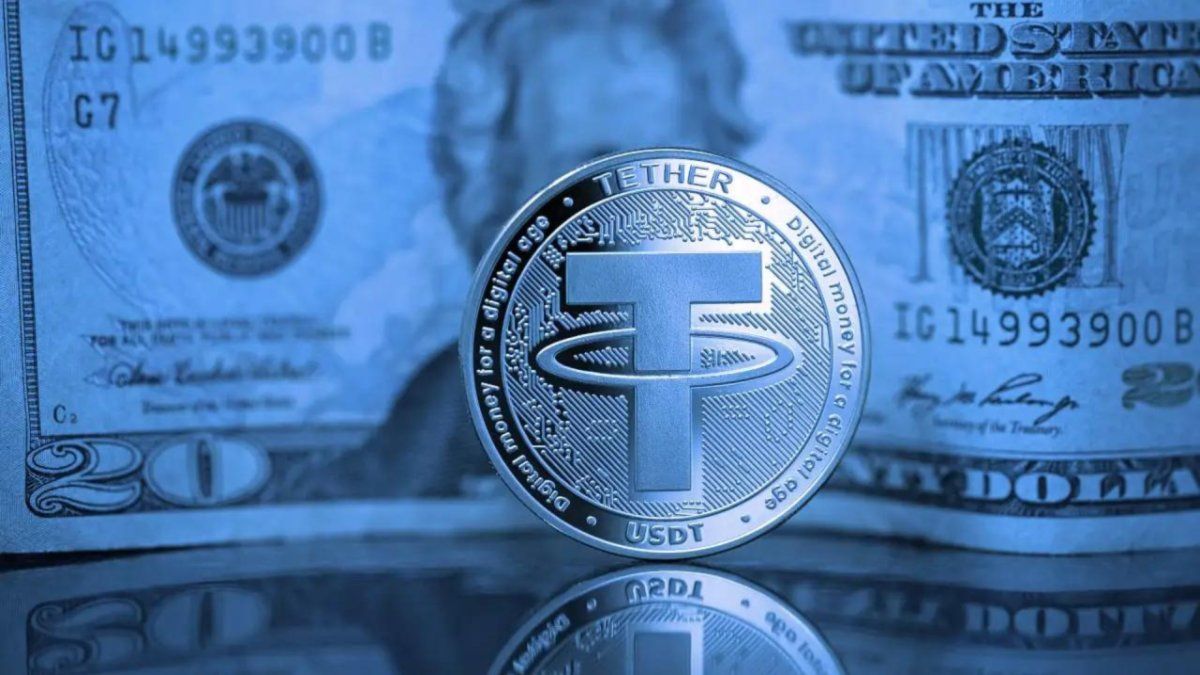Opinion
Can this party still be saved? In July, the heads of state and government of the member states will meet for the NATO summit in Washington. But instead of unity and determination, discord and doubt reign within the alliance. The only thing that can be done is to hold your nerve.
It is supposed to be a brilliant milestone birthday, true to the motto: 75 years old, but not at all tired. But when the heads of government of the 32 member states of the NATO family gather in Washington’s Walter E. Wilson Convention Center in July for the big anniversary party, it could go like so often at celebrations among relatives: the proud speeches only barely drown out the discord within the clan; despite the visible efforts of the hosts, everyone notices that there used to be more tinsel; as the evening progresses, the brother-in-law becomes abusive and spoils the party completely.
One person who sees the mess coming and is already trying to counteract it is Jens Stoltenberg, outgoing NATO Secretary General and something of a master of celebrations in Washington.
Jens Stoltenberg’s fight for unity ahead of NATO summit
So that the NATO family photo in July can at least radiate a glimmer of determination and strength, the Norwegian has spent weeks begging the alliance members to allow the increasingly desperate Ukraine to use Western weapons directly against Russian territory. With success. In the end, even the cautious US government and Berlin have given in.

At the opening of the NATO foreign ministers’ meeting in Prague, Stoltenberg has now taken the next step: NATO states should double their aid pledges to Kiev, to 40 billion US dollars per year, or at least 0.08 percent of their own gross domestic product. This is intended to be a signal to Vladimir Putin, just in time for NATO’s anniversary summit: Don’t get your hopes up about winning a war of attrition.
It is unclear whether Stoltenberg’s new idea will become reality. The 0.08 percent formula places particular responsibility on NATO countries that have so far provided little aid. Germany’s support for Ukraine is already above this limit.
But even if Jens Stoltenberg can prevail once again, the mood in Washington still threatens to become mixed.
The accession of Sweden and Finland has strengthened the alliance. And Russia’s war of aggression shows everyone how desperately necessary the alliance is. (But also how large the gaps are, for example in air defense along NATO’s eastern flank, after 30 years in which defense capabilities apparently no longer played a role.)
Should Ukraine join NATO? And if so, when?
But all of this cannot disguise the fact that the Washington banquet menu will be missing a crucial course: a commitment and timetable for Ukraine to join NATO. No matter how hard the Eastern and Northern European member states drum up support for it with support from Paris, for the USA and Germany, joining NATO in times of war remains a no-go.
Instead, there should be a “new language” in Washington on “Kiev’s membership aspirations,” as Julianne Smith, the US ambassador to NATO, emphasized in a press briefing this week. As part of an aid package that Kiev should please understand as a “bridge to membership.” “This bridge will be made of steel and well lit, and we will do everything we can to help our Ukrainian friends cross it – step by step,” said the US ambassador to NATO. The first bridge pillar could be a bilateral security agreement that US President Joe Biden and his Ukrainian counterpart Volodymyr Zelenskyy want to sign at the G7 summit in Apulia in mid-June.
The mood between the two presidents is said to have reached a low point these days. “We are further apart than at any time since the war began,” a Zelensky confidant recently complained to the Financial Times.
With the major Ukraine conference in Switzerland in the run-up to the NATO summit, the Ukrainian president wants to put his country back in the center of international attention – and increase the pressure on the allies in the accession question. But the initiative is in danger of coming to nothing: Joe Biden has canceled because of an election campaign appointment in Hollywood. Important states from the BRICS group are also only sending second or third-rate representatives.
A shadow that falls on the brilliant celebration of NATO’s 75th anniversary. Another one. And at the same time, Russia’s army is expanding its offensive in the north and east of Ukraine.
Instead of improving the mood, the pressure is increasing ahead of NATO’s big anniversary. Much will depend on whether the anniversary guests keep their nerve.
Source: Stern
I have been working in the news industry for over 6 years, first as a reporter and now as an editor. I have covered politics extensively, and my work has appeared in major newspapers and online news outlets around the world. In addition to my writing, I also contribute regularly to 24 Hours World.




